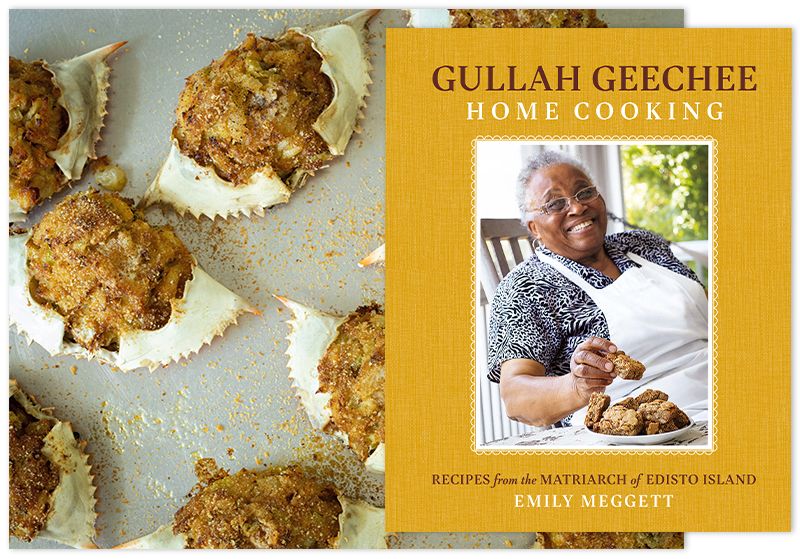Find Emily Hutchinson Meggett’s recipes for Lowcountry staples such as deviled crab and hoppin’ John

“You want that deviled crab to be overflowing so it’s a real treat for guests,” Emily Meggett writes in her cookbook. Find signed copies of the New York Times best seller at Buxton Books.
Eighty-nine-year old Emily Hutchinson Meggett is known as the matriarch of Edisto Island. When she was born, the Dawhoo Bridge from the mainland was but a plank bridge, Highway 174 a dirt road. Throughout her life, Meggett has been celebrated as a giver who cooks for her church and community, feeds anyone and everyone who comes to her door, and delivers food to those in need. In her debut cookbook, Gullah Geechee Home Cooking, Recipes from the Matriarch of Edisto Island (Abrams, April 2022), co-written with Layla Stewart, Meggett shares the history and the recipes that have made her legendary.
“I was a descendent of the Gullah Geechee people, a group of enslaved Africans who managed to maintain culture, tradition, and identity,” writes Meggett, whose great-great-grandfather was enslaved on Peters Point Plantation. Located on the sea islands from mid North Carolina to upper Florida, the West Africans arrived with agricultural skills, particularly in rice farming, that proved valuable to their enslavers and vital to their survival as freemen. With her family’s survival dependent on the land and waters, as a teenager, she was given the choice of “working in the field, or somewhere else.” She chose the kitchen, and from 1954, worked for white families on the island, in particular the Dodge House for 45 winters.
Meggett’s cookbook tells the stories of both the impoverished existence of the Gullah residents as well as stories of the food for which she is celebrated. “Some of the most famous dishes in the Lowcountry, like red rice, hoppin’ John, and chicken purloo, are straight from the Gullah Geechee people,” she writes. “This was Black folks’ food, food that Mama made all the time.… Not only did we build this region’s wealth, we gave the Lowcountry some of its most treasured dishes, too.”
Readers will find family recipes, such as fish cakes and tomato casserole, as well as her specials, like baked quail, creamed oysters, deviled crabs, and spoon bread. Part history and part cookbook, with stunning photos by Clay Williams, this is a must-have for all Lowcountry kitchens and a testament to the extraordinary legacy of Emily Meggett.
Devilishly Good: Get Emily Meggett’s deviled crab recipe here.